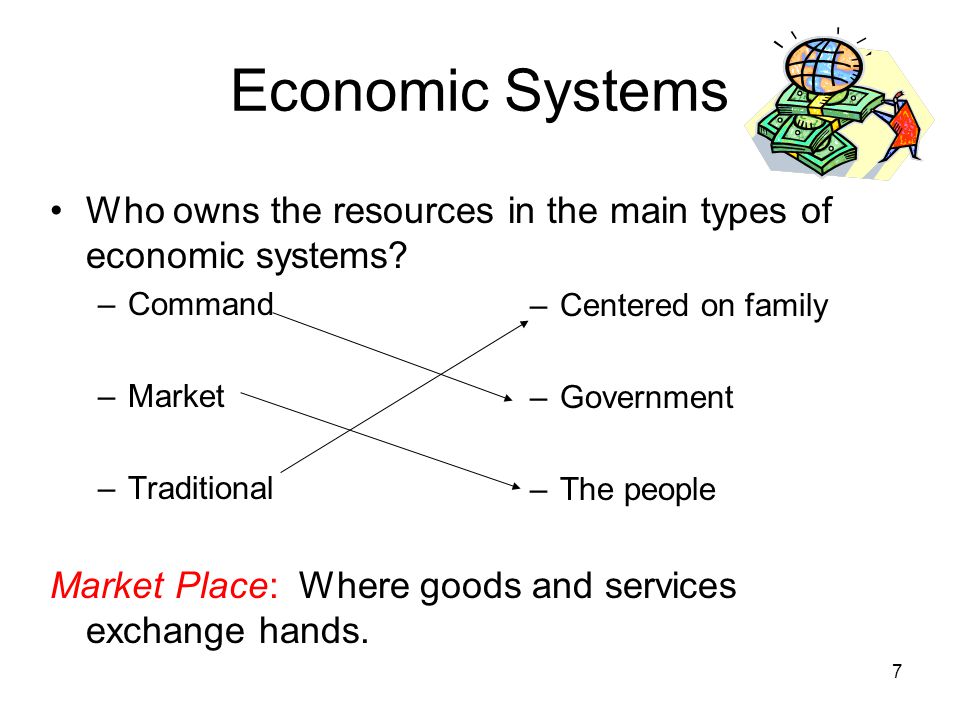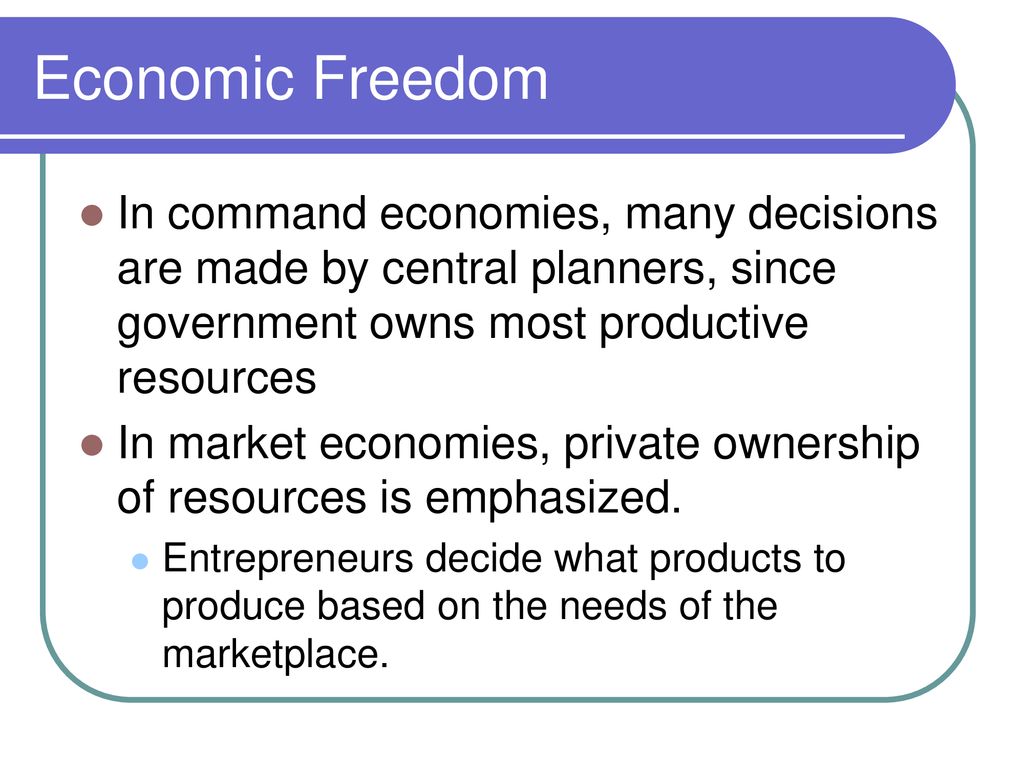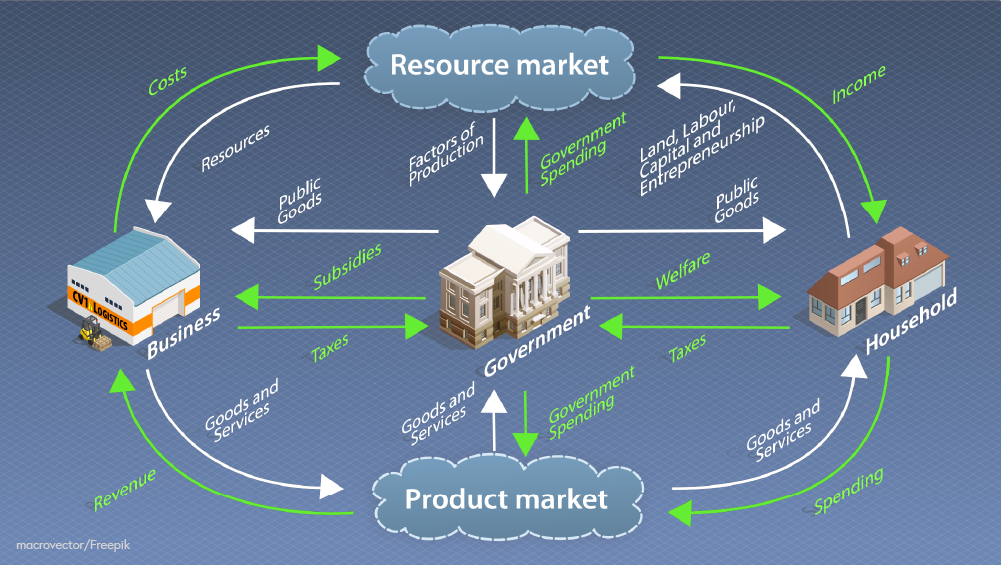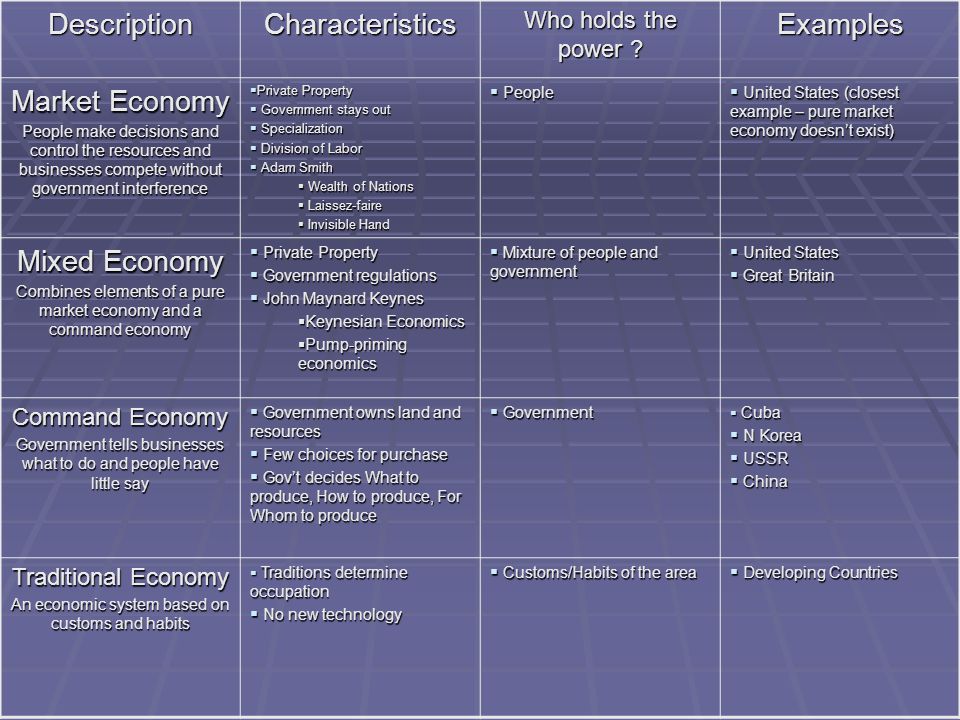Who Owns The Economic Resources In A Market Economy

In the intricate dance of supply and demand that defines a market economy, the question of ownership of economic resources takes center stage. This ownership, whether held by individuals, businesses, or even the government, dictates the flow of capital, the distribution of wealth, and ultimately, the direction of economic progress.
Understanding who controls these resources – land, labor, capital, and entrepreneurship – is crucial to grasping the fundamental mechanics and inherent dynamics of a market-driven system. This article delves into the complexities of resource ownership in a market economy, exploring its various facets and potential implications for individuals and society as a whole.
The Pillars of Ownership
At its core, a market economy is characterized by private ownership of the factors of production. This means that individuals and businesses, rather than the state, have the right to acquire, use, and dispose of resources as they see fit.
This right is often enshrined in law and protected by institutions, providing the foundation for investment, innovation, and economic growth. Private ownership acts as a powerful incentive, encouraging individuals and firms to utilize resources efficiently and productively.
Land and Natural Resources
Land, including the natural resources embedded within it, can be owned privately in many market economies. This ownership allows individuals and companies to develop the land, extract resources, and profit from their efforts.
However, the extent of private ownership of natural resources can vary significantly. Governments often retain control over certain resources, especially those deemed essential for national security or environmental protection.
Labor: Ownership of One's Self
Perhaps the most fundamental aspect of resource ownership in a market economy is the individual's right to their own labor. People are free to choose their occupations, negotiate their wages, and offer their services to employers of their choosing.
This freedom of labor is a cornerstone of individual liberty and economic opportunity. It empowers individuals to pursue their passions, develop their skills, and improve their standard of living.
Capital: The Engine of Growth
Capital, encompassing tools, equipment, and infrastructure used in production, is another key resource that is typically privately owned in a market economy. Businesses and individuals can accumulate capital through savings and investment, allowing them to expand production, improve efficiency, and generate profits.
The availability of capital is essential for fostering innovation and driving economic growth. A well-functioning capital market facilitates the efficient allocation of resources to their most productive uses.
Entrepreneurship: The Spark of Innovation
Entrepreneurship, the willingness to take risks and create new businesses, is arguably the most dynamic economic resource. While entrepreneurship isn't "owned" in the same way as land or capital, the fruits of entrepreneurial endeavors – the profits, the innovations, the intellectual property – are typically protected under private property rights.
This protection incentivizes individuals to take calculated risks, develop new products and services, and contribute to economic progress. Entrepreneurs are the driving force behind innovation and job creation in a market economy.
The Role of Government
While private ownership is the defining characteristic of a market economy, governments play a vital role in regulating and overseeing the use of economic resources. Governments enforce property rights, provide legal frameworks for contracts, and regulate markets to prevent monopolies and protect consumers.
Additionally, governments may own and manage certain resources, such as national parks or infrastructure, that are deemed to be public goods. The appropriate balance between private ownership and government control is a matter of ongoing debate and varies across different market economies.
Potential Impacts and Considerations
The way economic resources are owned has profound implications for society. Private ownership can lead to greater efficiency, innovation, and wealth creation, but it can also exacerbate inequality if access to resources is unevenly distributed.
Consider the example of Sarah, a single mother who dreams of starting her own bakery but lacks the capital to secure a location or purchase equipment. While the market economy offers opportunities for entrepreneurship, the lack of access to resources can be a significant barrier for individuals from disadvantaged backgrounds.
Furthermore, the pursuit of profit under private ownership can sometimes lead to negative externalities, such as environmental degradation or exploitation of labor. Governments must therefore strive to create a regulatory framework that promotes both economic growth and social well-being.
Navigating the Complexities
Understanding the nuances of resource ownership is essential for policymakers, business leaders, and citizens alike. By fostering an environment that respects property rights, promotes competition, and ensures equitable access to resources, societies can harness the power of the market economy to create a more prosperous and just future. The interplay between private initiative and public oversight remains a constant balancing act, requiring careful consideration and ongoing adaptation to address the evolving needs of society.
The debate over the optimal distribution of economic resources will undoubtedly continue, but the fundamental principle of private ownership remains a cornerstone of the market economy. It is through this framework that individuals are empowered to pursue their dreams, businesses are incentivized to innovate, and societies can strive for greater economic prosperity.


















